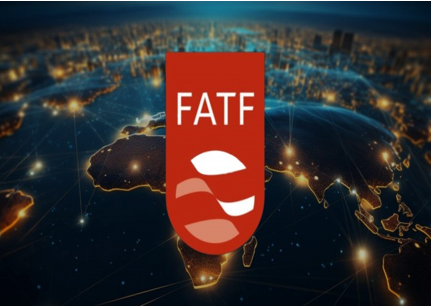INP-WealthPk
Moaaz Manzoor
Amid rising regional tensions, Pakistan has cautioned against politicizing international regulatory bodies such as the Financial Action Task Force (FATF), following reports that India intends to press for Islamabad’s return to the grey list, WealthPK has learned.

This move comes against the backdrop of India’s allegation that Pakistan-linked groups were behind the recent militant attack in Pehalgam, Kashmir, that killed 26 Hindu pilgrims – a claim Pakistan strongly denies. New Delhi has since announced retaliatory steps, including efforts to block the upcoming World Bank funding to Pakistan and a campaign to re-list the country on the Financial Action Task Force’s (FATF) grey list.
Pakistan has condemned these moves as politically motivated, emphasizing its longstanding efforts to meet international counter-terrorism and financial transparency standards. These developments occur despite Pakistan’s removal from the FATF grey list in 2022, following the implementation of significant reforms. Speaking with WealthPK, Syed Basim Raza, Senior Researcher at the Centre for Law and Security (CLAS), said Pakistan was under renewed financial and diplomatic strain due to India’s narrative warfare at multilateral forums.
He stressed, “FATF mechanisms should uphold objective standards and not be misused for geopolitical rivalry.” He noted that Pakistan had made measurable progress, achieving “compliant or largely compliant status in 31 out of 40 FATF recommendations” — a claim substantiated by its 2022 delisting. Economically, he highlighted that Pakistan’s successful negotiations with the IMF, which culminated in a $7 billion bailout, with $2 billion having been disbursed as of March 2025. This has helped stabilize the country’s fiscal landscape.
He urged Islamabad to “initiate a robust diplomatic engagement to expose Indian hypocrisy, particularly its support for terror groups in Pakistan while reaffirming its adherence to the FATF commitments.” Namra Saleem, an economist at the Policy Research & Advisory Council (PRAC), termed India’s strategy “weaponizing economic governance platforms” for bilateral ends. “India is trying to exploit the FATF and World Bank proceedings to isolate Pakistan economically, but this reflects the erosion of the core neutrality of such institutions,” she explained.
She emphasized that Pakistan’s removal from the grey list followed “full implementation of a stringent 34-point action plan,” reflecting a deep institutional commitment. To counter India’s offensive, she advised Pakistan to “strengthen financial diplomacy, consolidate ties with countries like China, Türkiye, and Gulf nations, and broaden its regional trade and development portfolio.”
Nimra stressed that long-term economic resilience will depend on “structural reforms, diversification of funding sources, and strengthening debt sustainability.” She added that this episode presents Pakistan with “an opportunity to reframe its economic identity as one built on transparency, cooperation, and multilateral engagement.”
India’s push to use FATF and other global financial platforms against Pakistan risks turning neutral multilateral institutions into battlegrounds for regional antagonism. By remaining committed to reform, proactive diplomacy, and economic diversification, Pakistan must continue to assert its case based on merit and fairness.
Credit: INP-WealthPk













